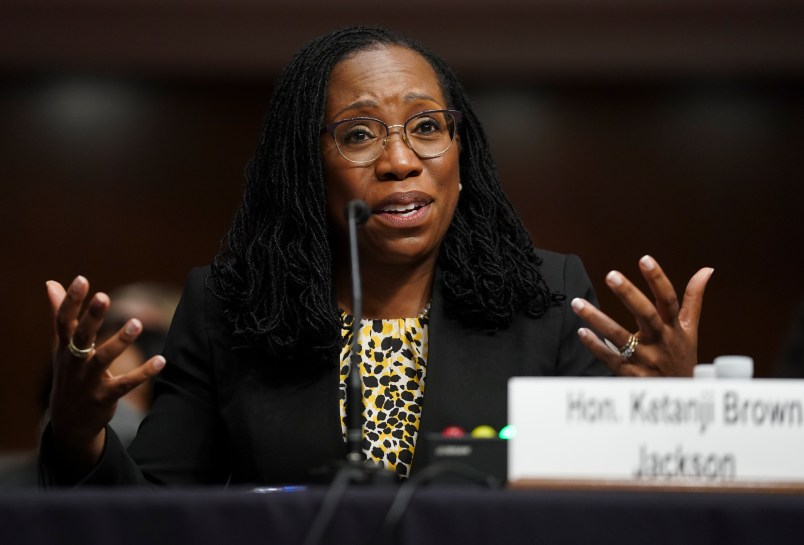Only three Republican senators voted to invoke cloture on the nomination of Judge Ketanji Brown Jackson to fill Attorney General Merrick Garland’s seat on the U.S. Court of Appeals for the D.C. Circuit, a procedural step that puts her on the road to a likely confirmation.
Those Republicans were Sens. Lindsay Graham (R-SC), Lisa Murkowski (R-AK) and Susan Collins (R-ME). The final vote was 52 to 46, with Sen. Tina Smith (D-MN) absent for the Democrats.
The vote is good news for Jackson’s chances of joining the highly regarded appellate court: thanks to then-Senate Majority Leader Harry Reid’s (D-NV) going nuclear on the filibuster in 2013, it only takes a simple majority to confirm judicial nominees.
But for a potential future promotion, it bodes ill for fervent cheerleaders of bipartisanship.
Jackson is considered a possible future nominee to the Supreme Court, should a vacancy arise during President Joe Biden’s term. He has pledged to nominate a Black woman to the court if he gets the chance.
The lack of Republican support for Brown’s nomination to the appellate bench pours cold water on the rosy-eyed notion that a significant number of Republicans would support her elevation to the high court.
Jackson, a D.C. district judge, has worked as a public defender and clerked for Supreme Court Justice Stephen Breyer early in her career. Many liberals have been pressuring the 82-year-old Breyer to retire, hoping to replace him with a younger nominee while Democrats still control the Senate. Jackson, incidentally, is only 50.
At her Senate Judiciary Committee hearing, Republicans focused their criticism on various groups backing her nomination, as well as her rulings against the Trump administration. Sen. Chuck Grassley (R-IA), who voted against advancing her nomination out of committee and on the floor, said he’d vote against any nominee who’s not an originalist.
Since Senate Minority Leader Mitch McConnell (R-KY) hacked away at another part of the filibuster in 2017, it only takes a simple majority to confirm Supreme Court nominees, making Republican support less critical.
But it’s another sign of the polarization of our times. Breyer was nominated in 1994 and confirmed on a vote of 87 to nine. If Jackson does ultimately replace him on the bench — noting that he’s given no clear indication yet that he wants to retire — there’s virtually no chance she’d be confirmed with such bipartisan verve.



